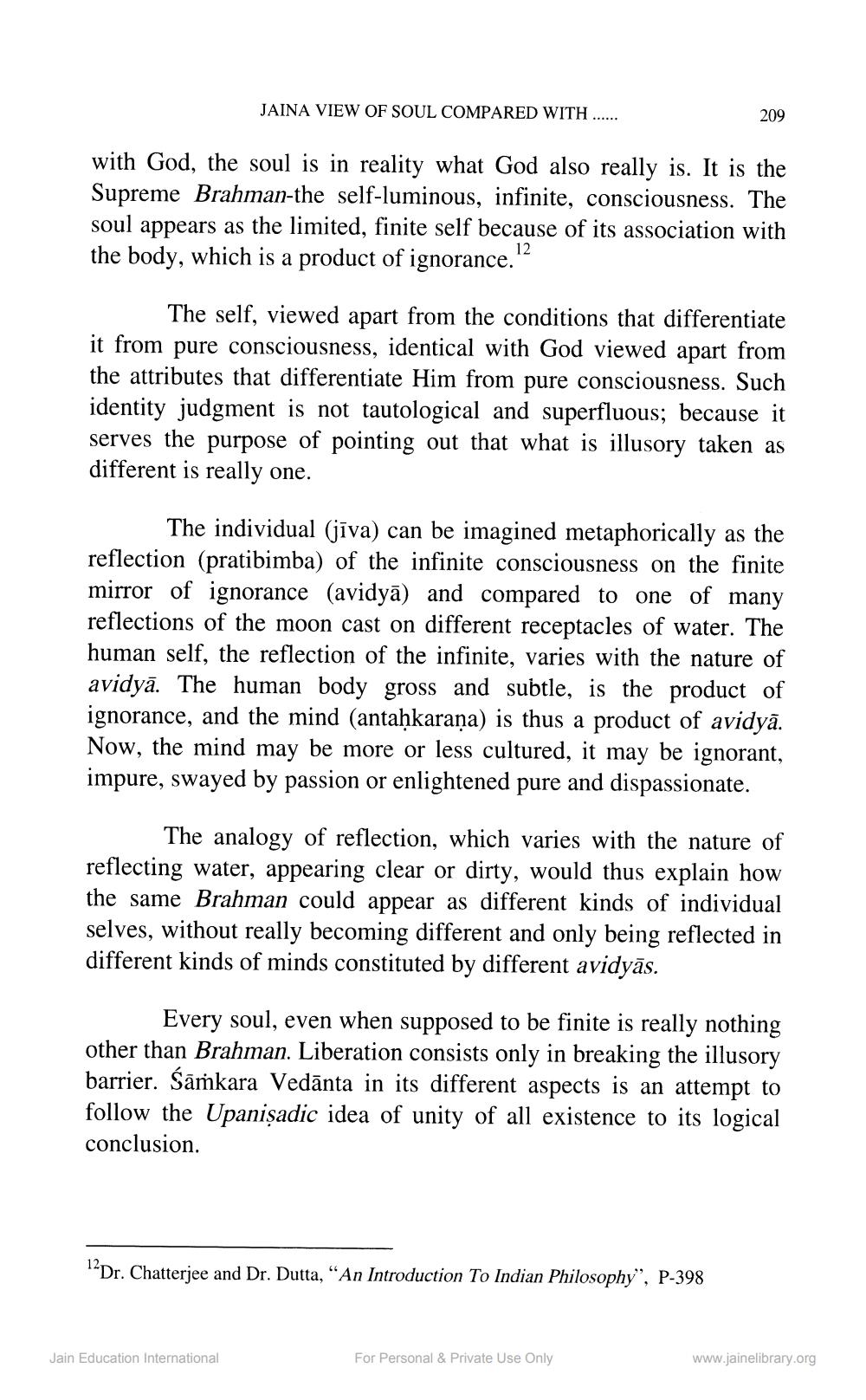________________
JAINA VIEW OF SOUL COMPARED WITH ......
209
with God, the soul is in reality what God also really is. It is the Supreme Brahman-the self-luminous, infinite, consciousness. The soul appears as the limited, finite self because of its association with the body, which is a product of ignorance."
The self, viewed apart from the conditions that differentiate it from pure consciousness, identical with God viewed apart from the attributes that differentiate Him from pure consciousness. Such identity judgment is not tautological and superfluous; because it serves the purpose of pointing out that what is illusory taken as different is really one.
The individual (jīva) can be imagined metaphorically as the reflection (pratibimba) of the infinite consciousness on the finite mirror of ignorance (avidyā) and compared to one of many reflections of the moon cast on different receptacles of water. The human self, the reflection of the infinite, varies with the nature of avidyā. The human body gross and subtle, is the product of ignorance, and the mind (antahkarana) is thus a product of avidyā. Now, the mind may be more or less cultured, it may be ignorant, impure, swayed by passion or enlightened pure and dispassionate.
The analogy of reflection, which varies with the nature of reflecting water, appearing clear or dirty, would thus explain how the same Brahman could appear as different kinds of individual selves, without really becoming different and only being reflected in different kinds of minds constituted by different avidyās.
Every soul, even when supposed to be finite is really nothing other than Brahman. Liberation consists only in breaking the illusory barrier. Šāṁkara Vedānta in its different aspects is an attempt to follow the Upanișadic idea of unity of all existence to its logical conclusion.
12Dr. Chatterjee and Dr. Dutta, "An Introduction To Indian Philosophy”, P-398
Jain Education International
For Personal & Private Use Only
www.jainelibrary.org




